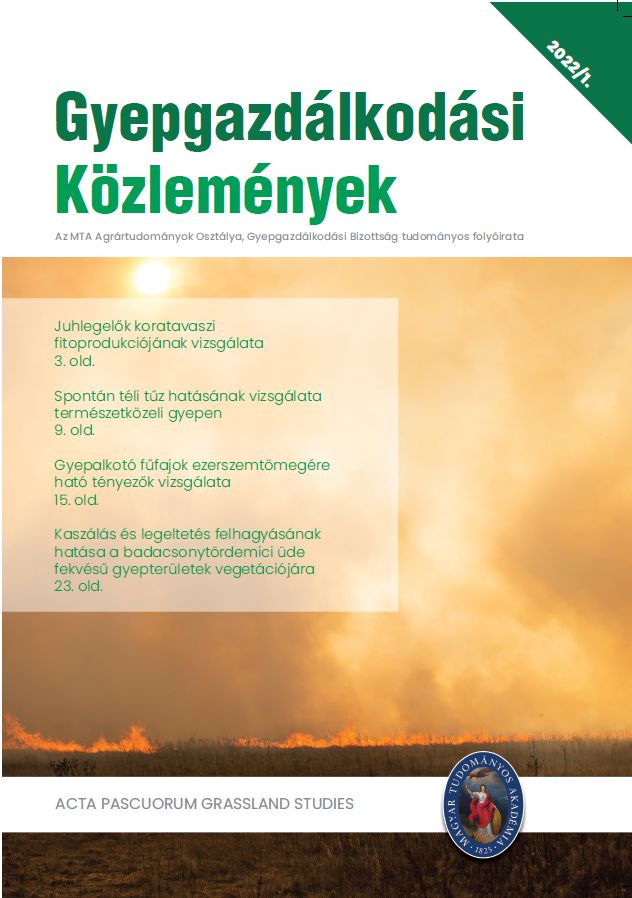Antropogén környezeti változásokat követő fajképződési lehetőségek a Kárpát-medence középső homokos területén a Festuca taxonok példáján keresztül
Szerzők
Megtekintés
Kulcsszavak
Hogyan hivatkozzuk
Absztrakt
Our goal is to check and revise the dominant Festuca species of vegetation types formed under extraordinary conditions through morphotaxonomic and ploidy analyses. To accomplish this, we had to add examinations of dominant species in grasslands further from the Danube in the Carpathian Basin and East Central Europe. Individuals of examined taxa were analysed using 26 parameters of the inflorescences. Ploidy was analysed using low cytometry. After deforestation and shrubcutting, bare soil patches of areas exposed to anthropogenous effects had provided an opportunity new vegetation to form. As a result of this work, new species Festuca pseudovaginata had been discovered here, which is endemic in the Carpathian Basin. Survey continues in order to clear other hardly identificable taxa. The results have confirmed the presence of the species, but we also have new occurences discovered.

 https://doi.org/10.55725/gygk/2022/20/1/11144
https://doi.org/10.55725/gygk/2022/20/1/11144